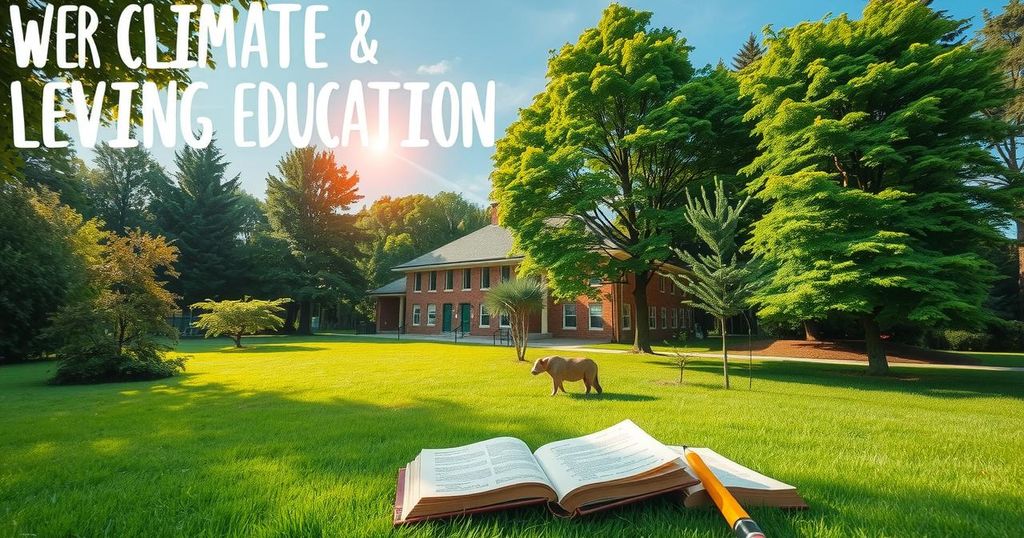Survey Highlights Climate Change’s Impact on Brazilian Education

A survey reveals that climate change significantly affects education in Brazil, leading to canceled classes, heat-related disruptions, and increased absenteeism. The technical note by Sofia Lerche emphasizes the need for curricular reforms to enhance climate literacy while advocating for a collaborative educational approach. Furthermore, it outlines the necessity of emotional support for students experiencing climate anxiety and stresses the importance of community engagement in addressing these challenges.
A recent survey underscores the profound impact of climate change on education in Brazil. Frequent class cancellations due to floods, extreme heat affecting study conditions, and increased absenteeism from respiratory issues linked to wildfires exemplify the myriad challenges students face. Conducted by Sofia Lerche, an esteemed professor at the State University of Ceará, the technical note titled “The Impact of Climate Change on Education: Initiating a Debate” details these challenges and proposes actionable recommendations to address them.
Ms. Lerche articulates that climate change operates as an external variable influencing educational institutions, suggesting that schools cannot single-handedly mitigate its effects. Nevertheless, she posits that schools are vital spaces for raising awareness and can offer protection against extreme weather, enabling discussions on environmental challenges. The initiative, supported by organizations including D3e and Todos Pela Educação, emphasizes the necessity for curricular reforms prioritizing climate literacy and environmental education for both educators and students.
The study advocates for a multidisciplinary approach, arguing that addressing climate preservation and sustainability requires collaborative efforts among all subjects in the school curriculum. For instance, a combined effort from languages and sciences in developing project-based learning on relevant climate themes can enrich students’ understanding of the topic. Furthermore, integrating emotional support practices is essential to help students cope with “climate anxiety” and foster resilience amidst environmental crises.
In situations where in-person education is not feasible due to climate emergencies, Ms. Lerche urges a revival of the innovative remote learning strategies adopted during the COVID-19 pandemic, ensuring they are effectively implemented when necessary. It is crucial that the lessons learned during that period are not forgotten but utilized as a resource for future challenges.
The technical note also emphasizes the importance of community engagement in environmental initiatives, suggesting that schools could serve as resources for their localities during extreme events. Furthermore, the study highlights the role of public authorities in facilitating these educational transformations, tailoring efforts to specific regional needs, such as droughts in northeastern Brazil or severe rainfall in other areas.
The findings are grounded in recent global research from reputable organizations including UNESCO, the World Bank, and the OECD. Ms. Lerche notes that while the full scope of climate change’s impact on school attendance is yet to be quantified, its significant adverse effects on teaching and learning processes are already evident across various contexts.
In conclusion, climate change presents multifaceted challenges that severely impact education in Brazil, necessitating a concerted response from educational institutions and authorities alike. By fostering environmental literacy, promoting multidisciplinary collaboration, and enhancing community involvement, schools can play a pivotal role in addressing these urgent issues. The continuous evaluation of effective strategies, particularly those cultivated during the pandemic, will be vital for building a resilient educational framework in the face of ongoing environmental crises.
Original Source: valorinternational.globo.com






